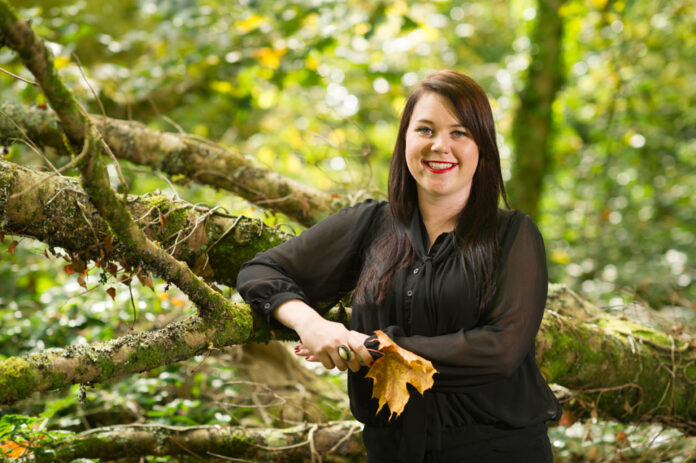SCARIFF doctoral student Lorraine Lynch is leading the way for a new study on Dyspraxia/Developmental Co-ordination Disorder (DCD).
Lorraine’s background is in psychology and while studying abroad, she began researching developmental psychology and came across dyspraxia. She noted that little research had been done on the condition and although statistics are not readily available, she noted it is quite common.
Dyspraxia, is a condition that affects a child’s physical co-ordination and results in many difficulties with daily activities, as well as academic, social and sporting achievements. Although no consensus has been confirmed for the cause of dyspraxia, it is associated with a number of physical (obesity and hypertension) and psychological (depression and anxiety) problems that extend into adulthood.
According to Lorraine, it manifests in children in different ways but one of the commonalities is that it can affect a child’s gross motor movement, such as poor posture and balance, which makes activities such like sports difficult for them. It can also affect fine motor movement, which affect intricate activities like tying shoe laces, doing up a buttons or handwriting. It also affects concentration and rhythm or spatial awareness.
She explained the condition was known as clumsy child syndrome in the 1960s and ’70s and noted that while this is an ignorant term, it does illustrate the effect it has on a child.
“I thought how can something that is so prevalent not be studied? There are other disorders, like autism, which are just as prevalent but there are lots of resources being pumped into them at the moment. Autism is trendy right now and lots of work is being done on it right now but dyspraxia is just as prevalent but we don’t know enough about it. In the text books I read, it got two lines,” Lorraine explained.
She is hoping her study, which is currently in its infancy, will not only highlight the condition and garner useful data but she hopes to develop a physical activity-based intervention for children with dyspraxia. Research has shown that an increase in aerobic exercise reduces the difficulties associated with the condition and promotes better overall wellbeing.
Lorraine had no dealings with anyone with dyspraxia prior to undertaking this study and it was only through her research that she realised how valuable a study on the condition could be. Her first port of call to learn more was to contact the Dyspraxia Association of Ireland. She now acts as a facilitator with their support groups in Galway. Through this work, she has met many parents of children with the condition and has learned a lot about the issues they have.
Among the symptoms associated with the condition is lack of attention or poor concentration.
“You could call the child by their name, which is something everyone responds to immediately but you might call them five or six times and they wouldn’t respond, so you’re not sure if they have heard you. The purpose of my study is to look at the physiological risk factors. Because those with dyspraxia are not so good in the playground, they do not get involved in physical activity as much. For instance, if you are really bad at basketball you’re going to avoid playing basketball and so if you are bad at all sports, then you are going to avoid all sports and focus on something else. They also have difficulties academically and socially but I’m only focusing on physical sports and on the psychological effects of that,” she explained.
In terms of awareness of the condition, Lorraine said she conducted her own informal study with friends, many of whom are primary school teachers.
“I asked them what do you know about dyspraxia and I would say that 70% of them never heard of it before; 25% knew what it was and had heard of it but didn’t know enough about it and only 5% were able to tell me anything about it. This was a range of teachers, the majority of them were newly qualified and that to me is scary,” Lorraine explained.
She added that while there are no hard statistics on the amount of children affected by the condition, it is estimated to be somewhere in the region of 5% to 10%.
“If it is between 5% and 10% then you are looking at one child per classroom and, statistically, if that’s the case, that’s huge and that cannot go under the radar,” she said.
Dyspraxia is diagnosable and it is usually assessed by either a physiotherapist on referral from a GP. She says there are similarities between the condition and other disorders, which sometimes go hand-in-hand with the condition.
“They might be diagnosed with dyslexia because of the handwriting and their attention or maybe diagnosed as ADHD, and it does happen often with these other things but it might be that they don’t exclusively have dyslexia, there might be more to it. They are all learning difficulties and if you are not diagnosed, you won’t get the extra resource hours and the child needs those extra resource hours, so they are at a huge disadvantage. There are a lot of parents out there who don’t know what dyspraxia is, so they might be wondering why their child is so clumsy but they might be wondering what is going on, they don’t have dyslexia or ADHD and they’d never have heard of dyspraxia, so there’s that to it too,” she said.
Lorraine’s study will specifically look at how children perform at sport and how this affects them socially. She will be looking out for levels of anxiety and depression, self worth, self esteem, social isolation and bullying, which she says are huge in children with dyspraxia.
“If it is not treated in children then it gets higher in adolescence and in adulthood, so we would like to design an intervention where we are able to combat that in childhood, which I would hope will have huge implications for them as adults,” she outlined.
Lorriane is seeking participants for the focus groups, as she says she wants the study to be informed by the children themselves who are suffering from dyspraxia and also parents of children with the condition.
“There will be things that the children will be able to tell me that research hasn’t highlighted yet and the parents will be able to tell me things that the child might not be able to verbalise, such as changes in them over time and their experiences of physical activity,” she said.
Lorraine designed her research proposal and having met with her two supervisors in the University of Limerick, they were enthused by the research as it had not been undertaken before. Indeed, Lorraine’s idea was commended at the 36th Annual Congress for Psychology Students in Ireland held in Dublin City University earlier this year, when she took first prize for a presentation she delivered on the subject.
“Other researchers are very interested in what we are doing and if it is effective and significant, it will be huge. Also, I notice through the support groups I’m involved in that the parents of children with dyspraxia are extremely interested and want to be involved in it,” she said.
Lorraine is conducting her study under the supervision of Dr Maria Semkovska and Dr Daniel Tindall and the aim is to develop and evaluate a physical activity intervention, specifically designed to reduce problems associated with dyspraxia. The proposed exercise intervention will be informed by the findings from a number of focus groups with children with dyspraxia and their parents.
The exercise intervention itself involves a six-month course of physical activities to improve physical (cardiovascular risk factors and gross motor movement) and psychological (anxiety, depression and self-worth) health in children. It will be held on the UL campus, in conjunction with the expertise of the psychology and the PESS (Physical Education and Sport Sciences) departments. Participants will also complete follow-ups after six months and one year after completion of the intervention to determine its overall effectiveness.
Lorraine is seeking participants aged from eight to 18 years of age with dyspraxia or a parent of a child with dyspraxia, to take part in one focus group to discuss their or their child’s experiences of physical activity.
Focus groups will be held in the Ennis area in October and will consist of no more than six participants per hour session, and a person’s anonymity is guaranteed.
Potential participants are asked to email Lorraine Lynch on dyspraxiastudy@yahoo.ie with any questions they may have.
A native of Ennis, Colin McGann has been editor of The Clare Champion since August 2020. Former editor of The Clare People, he is a journalism and communications graduate of Dublin Institute of Technology.




